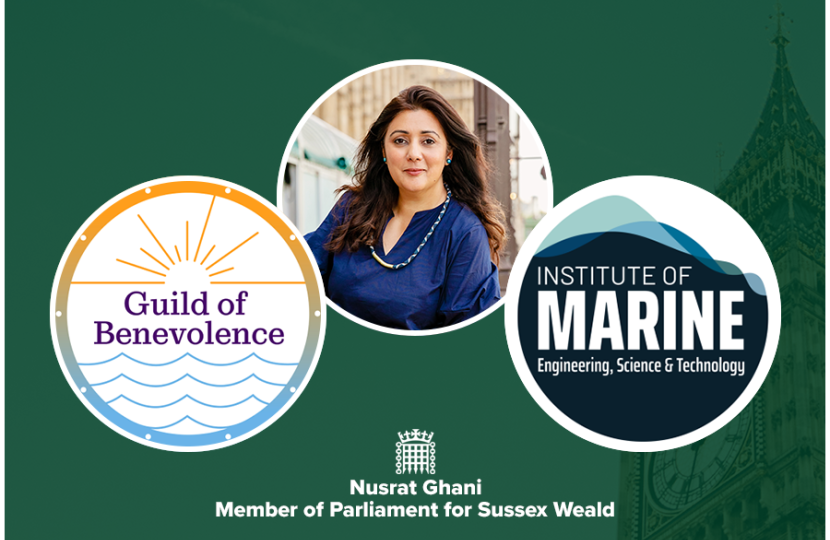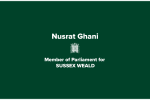
Nusrat Ghani MP has been supporting a ‘mental health at sea campaign’ run by our partner charity, the Guild of Benevolence. Here she calls for meaningful change when it comes to the sector’s poor record on mental health and harassment.
As the former minister for maritime and previous trustee of Seafarers charity, the welfare of seafarers is a subject close to my heart. I feel a profound sense of urgency when it comes to the need for change and protection of seafarers.
The maritime sector is vital to global trade and livelihoods, yet we cannot ignore the human cost borne by its 1.8 million seafarers. The stories of harassment, bullying, and mental health struggles I’ve heard are both harrowing and eye-opening. And, at the end of last year, the Guild of Benevolence ran an event featuring in-depth testimonies from seafarers, which has renewed my commitment to making a change in the sector.
These are not isolated incidents—they represent systemic failings. As a community, we must do more to support and protect our mariners. I’ve witnessed the resilience of this sector—but I’ve also seen its blind spots.
The stark reality, that one-sixth of seafarers have experienced or witnessed bullying or harassment, as highlighted by reports across the Maritime charity and welfare sector. These numbers would trigger uproar in land-based industries, yet, in maritime, they are met with muted responses. This ‘sea blindness’ must end.
Whether it’s sexual harassment, male-on-male assault, or pervasive workplace bullying, these issues discourage talented individuals—especially women and younger workers—from joining or remaining in this critical industry.
In my time as maritime minister, I advocated for initiatives to bring more people into the sector, but it’s clear that recruitment isn’t enough. We must create an environment where everyone feels safe and valued, whether on board a vessel or ashore.
I’ve been moved by the stories of individuals who have endured appalling treatment yet continue to fight for change. For instance, at the Guild of Benevolence event, we heard one senior officer’s account of enduring relentless harassment and assault, which was an important reminder of why this conversation is crucial.
The road to change starts with collective action. From enforcing stricter regulations and penalties to fostering inclusive leadership, every stakeholder has a role to play. Male allies in particular, have a powerful voice in challenging harmful norms and championing inclusivity – and this means standing up for all genders who are experiencing abuse.
I urge the maritime community to shed light on these issues boldly and unapologetically. Progress requires both courage and commitment, and I am here to lend my voice and network to amplify this cause. Together, we can create a maritime industry that not only powers global trade but upholds the dignity and well-being of every individual who serves it.
The original article is available here.


